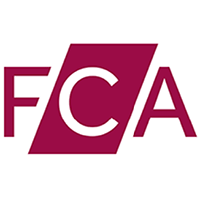Welcome to our in-depth discussion, the third lesson in our series, where we focus on a pivotal aspect of financial trading: choosing the right broker. The broker, serving as the intermediary between traders and the financial markets, plays a critical role in shaping your trading experience and outcomes. In a market teeming with competition, it's imperative to discern and select a broker that not only meets but exceeds your expectations.
Detailed Criteria for Broker Selection
Regulatory Compliance and Licensing:
- Importance of Regulatory Oversight: Ensure the broker is under the jurisdiction of recognized financial authorities and possesses a valid license. Regulators enforce standards and guidelines to safeguard traders' interests.
- Reputation with Regulatory Bodies: Examine the broker's compliance record, regulatory actions, if any, and their standing with financial watchdogs.
Reliability and Market Standing:
- Analyzing User Reviews: Scrutinize reviews and testimonials from other traders. Look for patterns in feedback that indicate the broker's reliability and trustworthiness.
- Broker's History and Market Presence: Investigate the broker's operational history, stability in market downturns, and their resilience in evolving market conditions.
Trading Conditions and Offerings:
- Comprehensive Analysis of Trading Terms: Examine not just spreads and commissions but delve into the details of leverage, margin requirements, swap rates, and other hidden costs.
- Instrument Diversity and Accessibility: Evaluate the range of available trading instruments, including currencies, stocks, commodities, and derivatives, ensuring they align with your trading interests.
Customer Support Excellence:
- Service Quality Assessment: Test the broker's customer support through various channels for response quality, timeliness, and the ability to resolve issues effectively.
- Availability and Accessibility: Confirm the availability of support in your preferred language and during your active trading hours.
Educational and Analytical Resources:
- Resource Richness: Look for a broker that offers a comprehensive suite of educational tools, including advanced trading courses, analytical tools, market research, and expert insights.
- Continuous Learning Opportunities: Evaluate the broker's commitment to updating and expanding its educational content to keep pace with market changes.
Demo Account Features:
- Realistic Simulation: Ensure the demo account accurately simulates real trading conditions, allowing for a genuine assessment of the platform and trading environment.
- Functionality and Ease of Use: The demo should offer full functionality, helping you to familiarize yourself with the platform's tools and features without financial risk.
Extended Considerations for Broker Selection
Technological Infrastructure:
- Platform Stability and Performance: Assess the broker's technology for reliability, speed of execution, and downtime history.
- Innovative Tools and Features: Look for advanced trading tools, automated trading support, and integration capabilities with third-party applications.
Security Measures and Fund Safety:
- Data Protection and Privacy: Confirm the broker's adherence to data security standards and privacy policies.
- Fund Segregation and Protection Schemes: Ensure your funds are segregated from the broker's operational funds and check if there are any compensation schemes in place for added security.
Flexibility and Customization:
- Adaptability to Trading Styles: The broker should cater to various trading styles, whether scalping, day trading, or long-term investing.
- Personalized Account Types: Look for options that allow customization of your trading account to suit your specific needs and risk tolerance.
Conclusion and Next Steps
Selecting a trustworthy and efficient broker is a crucial decision in your trading journey. Dedicate adequate time and effort to research, compare, and scrutinize different brokers, ensuring they align with your unique trading requirements and aspirations. Don't hesitate to engage with brokers, ask probing questions, and request comprehensive information before finalizing your choice.
In our next lesson, we'll delve into the MetaTrader 4 and MetaTrader 5 trading platforms, exploring their distinct features and how they can enhance your trading experience. Remember, success in financial markets is a fusion of knowledge, skill, and patience. Continual learning and strategy refinement are key to thriving in the dynamic world of trading.




















